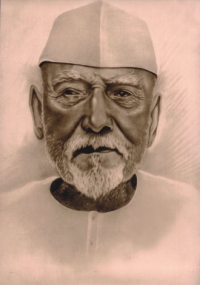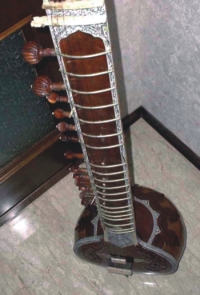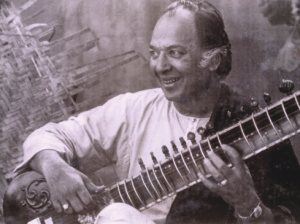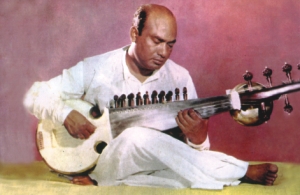http://www.udbhava.com/udbhava/songs.jsp?id=766
Bigg Boss 19: Daily Discussion Thread - 17th Oct 2025
GREENE FLAG ⛳
What will Yuvraj do?
Yeh Rishta Kya Kehlata Hai October 17, 2025 EDT
This is concerning.
i support farhana
Yeh Rishta Kya Kehlata Hai October 18, 2025 EDT
Kyunki Detailed Written episode Oct 16. Pics attached (Hindi captions)
Mental health club - Only Positivity allowed 🌟
Debate between Kareena-Ranbir fans about who's better?
KUJILI STARTED 18.10
Story- Tortoise to Rabbit😜
Anupamaa 17 Oct 2025 Written Update & Daily Discussions Thread
Alia channeling Gangubai in this scene from RRKPK!!!
Acha wala gunda
Deja vu ? Do you get Deja vu ?
Alia and Ranbir to move to their new house - Krishna Raj
Mera Armaan toh Green Flag Hai😌✅
Wanna see post leap trp ?????? Geetu vs Abhimaan romance who won??
Zora Releasing On Trimurti Films YouTube Channel
Great posts Anu 😊 THanks for sharing them.
Bismillah Khan to play at India Gate
New Delhi, May 7 - With the government permission obtained now, nonagenarian shehnai maestro Bismillah Khan will fulfil his 'last wish' of performing at the India Gate here, with melody queen Lata Mangeshkar in attendance.
The 'Meri Antim Abhilasha (My last wish) - Tune India Shehnai concert' is being performed by the Bharat Ratna recipient on July 15 to pay tribute to the unsung heroes of World War I and for global peace and communal harmony.
'We have requested Lataji, who was awarded the nation's highest civilian honour Bharat Ratna along with Ustad Bismillah Khan on 25th January, 2001, to grace the occasion,' said journalist Shivnath Jha, who along with his wife Neena is organising the event.
'It was Bismillah Khan's heartfelt desire to play the shehnai at the India Gate before he takes his last breath. He repeated his desire on his 91st birthday this year. We had assured him that it would be fulfilled and finally we got the nod from the Union Ministry of Home Affairs,' said Jha.
Incidentally, the India Gate - a war memorial built to pay tribute to Indian soldiers who died in World War I and the Afghan wars - completes 75 years in 2006.
Bismillah Khan had played the shehnai from the ramparts of the Red Fort on Aug 15, 1947, when India gained independence from British rule, said the couple who have also initiated 'Bismillah: The Beginning' movement to help the nonagenarian musician.
The couple said they would meet Lata Mangeshkar personally and invite her for the event. 'We are confident that she will not reject our plea as she has a more than 60-year association with Ustad Bismillah Khan and treats him like a brother,' Jha said.
Since his performance at the Red Fort, when he was in his 30s, almost 60 years have elapsed.
According to the Jhas, on April 28 Union Minister of State for Home Sriprakash Jaiswal called on the maestro at his abode in Varanasi, Uttar Pradesh, to invite him to perform at the India Gate.
The invitation left Bismillah Khan elated. 'Ab to mein India Gate par shehnai bajaunga. Hindustan meri hai, India Gate hamara hai (Now I shall play at the India Gate, India is mine, India Gate is ours,' an emotional Bismillah Khan said, according to the Jha couple.
The couple has brought out a monograph on the maestro to help him financially.
The ailing maestro is mostly confined to his modest house in Varanasi and his performances have become rare. He is not able to stand with his advanced age and has to be taken around in a wheel chair, said Neena Jha.
'More than 5,000 people, including from other countries, are expected to attend the function,' she said. The couple has received e-mail enquiries from the US and Britain about the function.
While Neena is a teacher, her husband is a journalist with Sahara Times, an English weekly newspaper.
Pandit Anokhelal, Ustad Keramtulla Khan, Ustad Bismillah Khan,
Pandit Shyam Ganguli, Pandit V. G. Jog, and Ustad Habibuddin Khan performing at the All India Music Conference 1953 in Calcutta
| I Never Thought I'll Get Bharat Ratna | |
 | "I never thought I would get the Bharat Ratna. Then, when the whole world said I had got it, I said, chalo maan liya, I have got the highest award,'' a visibly moved Ustad Bismillah Khan said at the Rashtrapati Bhavan on Friday evening. With the coveted award resting on his chest and the eyes glinting with rare happiness, the Ustad was in his element. Sitting in his wheelchair, he had already bowed and folded hands in a namaste to President K R Narayanan, Prime Minister Atal Bihari Vajpayee and other guests. |
| The formality of the award ceremony over, he paused in the corridor to answer a few questions. "All I would like to say is: Teach your children music, this is Hindustan's richest tradition; even the West is now coming to learn our music,'' he said. What did he tell the president? "I said play my music in the Rashtrapati Bhavan.'' He recalled that on August 15, 1947, he had played shehnai at the Red Fort at Jawaharlal Nehru's request. Though time was short, the Ustad was in a mood to talk. "There are three ways of doing riwaaz: learn music at the mazhaar, at the temple or on the banks of the Ganga.'' For every sequence he sang a few lines in a cracked but opulently rich voice. The little crowd that had circled around the wheel chair responded with notes of admiration. "I am a man from Banaras, so I appreciate a little bit of ras,'' he laughed. Almost impish like a child, he smiled and said, "Now please do not ask me questions about politics.'' He still practises, but no longer three and a half hours daily as he once used to do. The reason: the kind of Kusum ghee his chapati used to be soaked in is no longer available. "The tradition of our classical music should not be weakened,'' he pleaded. At 86, Bismillah Khan does not have any more expectations. It has been a long innings of fulfilment. This evening marked the epiphany of a long and successful career. Consciously proud of the Banaras gharana, his only worry is that the Indian classical music has to be saved from the incursions of outlandish influences. "When I see children swinging to the tune of pop, I feel pained,'' he remarked. |
Special Feature
Classical Music
Neglected and Dying
Sd Khan
Has classical Music vanished or been banished? Whatever it is, in Bangladesh it just isn't there any more! Despite having been the birthplace of such musical giants like Ustad Alauddin Khan, Ustad Ali Akbar Khan, Ustad Ayat Ali Khan and Ustad Vilayat Khan, classical music in Bangladesh is now but history. It is neither performed these days in any privately arranged musical functions nor is it heard or seen in any of the electronic media, state owned or private. Bangladesh today is an utter destitute of this fundamental music.
 |
| Ustad Allauddin Khan, the doyen, Born in Shibpur, B'baria, Bangladesh |
Indian Classical Music (in the northern tradition) reached its zenith during the reign of the Mughal Emperor, Akbar the Great. After the demise of this period, the culture of Shastriya Sangeet or pure music was kept going under the patronage of the Maharajas and Nawabs of the various independent internal states of British India. Music was in the blood of these rulers and it was one of their many regal passions. Prolific musicians graced their Courts or 'durbars'. Ustad Faiyyaz Khan, the Aftab-I-Mousiqi, was the court musician of the Maharaja of Baroda, while Ustad Bade Ghulam Ali Khan adorned the court of the Maharaja of Patiala. Hundreds of other great ustads or maestros both in vocal and instrumental music were literally 'fed and raised' by these connoisseurs of music. Generations of these court musicians were awarded state hospitality by the Maharajas that led to the creation of the different "gharanas" or houses of musical traditions. Like the Agra, the Gowalior, the Jaipur, the Seni, the Patiala and the Kirana gharanas. Having nothing to worry about, living, shelter and other worldly needs being taken care of, thanks to the largesse of their royal patrons, these musicians could devote themselves entirely to their respective art. The excellence of classical music of India thus soared higher and higher. Those were the hey days of our classical music.
In sharp contrast, Bengal did not have any Maharaja or Nawab of the stature of those of northern India. There were, however, a few petty maharajas (like that of Tripura, Gouripur, Natore) and numerous Zamindars in East Bengal. Ustad Alauddin Khan was for sometime in the court of the Maharaja of Tripura. The legendary Sitar maestro of all time, Ustad Enayet Khan was the brightest jewel in the court of the Maharaja of Gouripur (near Mymensingh) during the twenties where his son, the proverbial Sitar maestro of our time, Ustad Vilayat Khan, the Aftab-I-Sitar, was born. Under the patronage of these small maharajas and local zamindars (mostly Hindus), the culture of classical music somehow continued to thrive in our part of the subcontinent. Music being part and parcel of Hindu religious rites, its practice and culture was a normal phenomenon with this community. Maharajas, big zamindars or even the rich Hindu used to hold annual musical programmes of religious songs (Kirtan, Bhajan etc) during their Pujas. These landed gentry of those days always vied with one another in their bid to outdo one another, in their show of pomp and aristocracy by holding such music conferences. In their bid to outdo one another, they invited the good, and the best musicians of that time to their state to live permanently and perform their art in total freedom from worldly cares. Coming into contact with the famous (mostly Muslim) Ustads from the upcountry a new generation of talented Hindu classical singers and instrumentalists were born in the then Bengal. Names like Pt. Biswadeb, Pt. Tarapad, Pt. Jnanendra Goswami, Timir Baran, Radhika Mohan Moitra (of Rajshahi), Birendra Kishore Roy (of Gouripur) are noteworthy.
In the undivided Bengal, the city of Calcutta being the provincial capital, it was the centre of all activities including cultural. All the musical personalities at that time of Bengal and also from other parts of India converged in this city. After the partition, all the Hindu maharajas and zamindars in East Bengal migrated to Kolkata along with their musical entourage. The Bangali (all Hindu) classical vocalists and instrumentalists also left  for West Bengal. Music conferences of these artists were often arranged in those days in Kolkata by various private cultural organisations. In this way, not only the aristocratic intelligentsia of the society but even the common people of Kolkata got exposure to classical music for the first time. It is said that appetite comes with eating. Surprisingly, ordinary Kolkatans soon fell in love with classical music. Even today, if any musical soiree is held in any auditorium of Kolkata, and if some mikes are fixed outside for the public, there will be no dearth of common people to listen with patience to the serious musical recital and appreciate too the merits of the performance. Because of such an appreciative crowd, open-air performance of top classical musicians became very popular in that great city. Classical music thus attained a new dimension -- the once confined "chamber music" of the aristocrat was brought out in the open. In the nineteen fifties, the Indian government, through its state broadcasting media, the AIR, took up the missionary task of 'democratising' classical music. A regular weekly (Saturday night) "National Programme of Music", on the entire network of the AIR would broadcast a three-hour-long solo music performance (vocal and instrumental) of the great ustads and pundits in the country. This national programme continued to be aired for several decades by the AIR. The general public of India, who never even dreamed of listening to such great maestros in their lives, thus got acquainted not only with their names but also with their music by the grace of the AIR. The unique role played by the AIR in inculcating the Indian mass to develop a taste for classical music is beyond question. The entire credit goes to the AIR (and later to Doordarshan) for bringing about the refinement in the taste for music on the part of the Indian people. Indian classical music as it is known the world over today, is absolutely the result of the effort of the AIR. The Indian government felt it to be their moral duty to take it up as a campaign to preserve the rich treasure of classical music not only for the posterity but also for the world at large. It was something that they could hardly afford to neglect and let be lost to the debris of history. Many works of high intellectual excellence in the field of classical music of India had by now become part of the World Heritage of Arts. As only one example, the UN has preserved (years ago) Dhrupads sung by the famous Dagar Brothers in two extra long play discs. Internationally famous musicians like Ali Akbar Khan,
for West Bengal. Music conferences of these artists were often arranged in those days in Kolkata by various private cultural organisations. In this way, not only the aristocratic intelligentsia of the society but even the common people of Kolkata got exposure to classical music for the first time. It is said that appetite comes with eating. Surprisingly, ordinary Kolkatans soon fell in love with classical music. Even today, if any musical soiree is held in any auditorium of Kolkata, and if some mikes are fixed outside for the public, there will be no dearth of common people to listen with patience to the serious musical recital and appreciate too the merits of the performance. Because of such an appreciative crowd, open-air performance of top classical musicians became very popular in that great city. Classical music thus attained a new dimension -- the once confined "chamber music" of the aristocrat was brought out in the open. In the nineteen fifties, the Indian government, through its state broadcasting media, the AIR, took up the missionary task of 'democratising' classical music. A regular weekly (Saturday night) "National Programme of Music", on the entire network of the AIR would broadcast a three-hour-long solo music performance (vocal and instrumental) of the great ustads and pundits in the country. This national programme continued to be aired for several decades by the AIR. The general public of India, who never even dreamed of listening to such great maestros in their lives, thus got acquainted not only with their names but also with their music by the grace of the AIR. The unique role played by the AIR in inculcating the Indian mass to develop a taste for classical music is beyond question. The entire credit goes to the AIR (and later to Doordarshan) for bringing about the refinement in the taste for music on the part of the Indian people. Indian classical music as it is known the world over today, is absolutely the result of the effort of the AIR. The Indian government felt it to be their moral duty to take it up as a campaign to preserve the rich treasure of classical music not only for the posterity but also for the world at large. It was something that they could hardly afford to neglect and let be lost to the debris of history. Many works of high intellectual excellence in the field of classical music of India had by now become part of the World Heritage of Arts. As only one example, the UN has preserved (years ago) Dhrupads sung by the famous Dagar Brothers in two extra long play discs. Internationally famous musicians like Ali Akbar Khan,
Ravi Shankar, Vilayat Khan, Shiv Kumar Sharma, Bismillah Khan, Zakir Hussain, Hari Prasad Chaurasia, Bhimsen Joshi etc also played their ambassadorial role in introducing Indian classical music all over the globe by their regular performance visits. The 'popular' appeal
 |
| Ustad Vilayat Khan, Born in Gouripur, Mymensingh, Bangladesh |
of classical music that was created over the years by the sustained effort of State broadcasting (the AIR and the Doordarshan) media, had given direct impetus to the creation of new talents of these music. The handful of superannuated classical musicians once feared, as 'endangered' species will now continue to live through the younger musicians of the respective 'gharanas' of theirs. The classical music of India will thus never die.
Coming to the condition of classical music in Bangladesh, it is a shockingly sad story. It is heard no more in this country, nor can one even remember when was it heard last. It is said that when the vultures of a country quit, it spells a pall of doom for that country. Likewise, when the 'sarengias' (the players of sarengi) become scarce, it is the death knell for classical music. 'Sarengi' is inextricably connected to the practice of classical music. Its sound being closest to the human voice, this has been, from time immemorial, the chief accompanying musical instrument for vocalists. It is impossible to believe that in all the years of the Pakistan period and the Bangladesh period, not a single sarengi player was produced in this country. As the sarengi and its players came to be extinct, so did the classical music from Bangladesh. For a time, however, accompaniments to vocal music would be provided (in the then radio) by an apology of the 'sarengi', its distant cousin, the 'esraj', which could be played then only by one old Ustad Phuljhoori Khan.
Muslims in Bengal from the time of the British Raj were predominantly poor farmers and boatmen. Music to these people comprised of simple folk songs sung to the accompaniment of a 'dotara' Among the few educated people, the culture of music was a kind of taboo -- having no religious approbation. There was only one exception, -- Abbasuddin Ahmed, the folk singer. With the independence from the British in 1947, Muslims of East Bengal (Pakistan) gradually started to be educated and culturally oriented. Culture of modern songs, Rabindra Sangeet and of course folk songs began in full earnest. But the field of classical music was, for some strange reason, left totally ignored. Except one or two mediocre talents (Fazlul Huq, Barin Majumdar) there was none noteworthy in the domain of classical music. The musical taste of the people being plebian from the beginning, classical music, to her, held no attraction or appeal. In the fifties, when Ustad Bade Ghulam Ali Khan and Ustad Allauddin Khan came once to perform in a music conference in the Curzon Hall, I remember (I was a small boy then) that on both days of the performances of these musical giants, the majority audience booed the maestros and walked out of the Hall to the utter astonishment and indignity of the two ustads. They swore never to set their feet on this soil again! So, there was no hope in sight for classical music in this arid wasteland of music illiterates. West Pakistan, which too was not much better off than us in music, yet had a few classical musicians of high repute. Ustad Salamat Ali Khan and Nazakat Ali Khan, Ustad Amanat and Fateh Ali Khan were amongst them. They were frequent visitors here to perform in TV and radio. It can be safely claimed that the spell binding performance of these ustads had a great influence in motivating the potential (though few) musical talents of East Bengal (East Pakistan) in those days to lean towards learning classical music. Ferdausi Rahman soon became the disciple of Ustad Salamat Nazakat Ali. She subsequently became one of the top classical vocalist of the country, winning the Pride of Performance award from the President. Only two other senior classical vocalists of that time, namely, Ustad Fazlul Huq and Ustad Barin Majumdar in Bangladesh kept the torch burning with a handful of disciples around them. In the state controlled broadcasting media (both radio and TV) there was no significant airtime allotted for classical music. All the music time in TV or radio were allotted to modern music, Rabindra Sangeet, Nazrul Sangeet and folk song. The broadcasting authority of our country never felt it necessary to imbue the people with delicacy of taste in music by exposing them to the majestic beauty and elegance of classical music. It is the duty of the national TV/radio authority of any country to disseminate all higher forms of art to its people. People cannot have easy access to these materials by themselves and also they need to be educated to understand them. The BBC, the NHK, the RTF and all other state owned TV and radio organisations of the world serve their people in this regard. But ours, unfortunately, failed miserably. Lacking promotion by the state and the days of nawabs and zamindars gone, classical music in
 |
| Ustad Ali Akbar Khan. Born in Shibpur, B'baria, Bangladesh |
Bangladesh sharply declined, finally meeting its natural death. As a result, the country could not, to this day, produce a single classical musician, vocal or instrumental, of any standing whatsoever. With such a vacuum in the domain of classical music, that is the basis of all music, any genre of music in Bangladesh cannot reach very high standards. Without solid foundation of classical music, any attempt at singing or playing any musical instrument is bound to flounder. Be it a Tagore song, a Nazrul song or a modern song, the effort will produce an amateurish result. GB Shaw has rightly said, "Hell is full of musical amateurs." What we see or hear nowadays in our TV and radio is the living proof of Shaw's saying.
With such decay and degeneration gnawing at the core of our music, it is high time that we salvage our classical music from oblivion as soon as possible to underscore the need of its practice and training by all music aspirants. The lead role in this respect has got to be played by our national TV and radio. Also, the several private TV channels that are happily now operating in the country can too join hands in this salutary effort. That there is no short cut to music and no excellence in it could be attained without the grounding in classical music, this fact must be driven home. Talents in classical music must be tapped by holding musical conferences all over the country. Similarly, international musical symposiums, conferences etc should be arranged at regular intervals by inviting stalwarts in classical music from India. It is the exposure again that counts in motivating people to noble pursuits. The land that once gave birth to so many musical giants and genius certainly has the potential to repeat its feat. As long as their is enough support and encouragement from both the society and state.